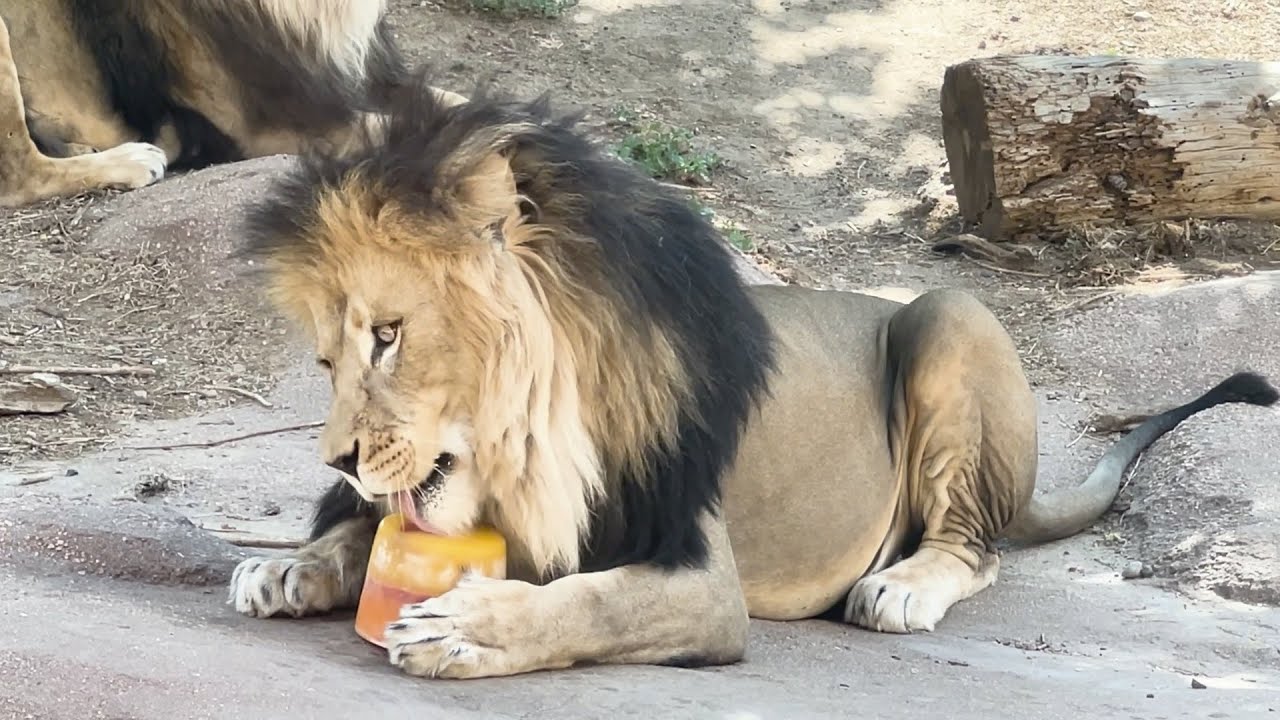- Celebrate the lion brothers’ birthday by understanding their vital role in ecosystems and the importance of their conservation.
- Explore the scientific and behavioral aspects of lion social structures, emphasizing familial bonds and cooperation in the wild.
- Discuss the significance of zoo-based conservation programs and their contributions to preserving lion populations globally.
- Highlight the educational purpose of zoos and how events like the lion brothers’ birthday can foster public interest in wildlife conservation.
- Analyze the challenges faced by wildlife conservationists today and strategies to mitigate threats to lions in their natural habitats.
The lion brothers’ "Hang 10" birthday is more than just a celebratory event; it symbolizes the intricate connections lions have with their environment and the overarching mission of conservation efforts. Lions are apex predators, playing a crucial role in maintaining the balance of their ecosystems. They regulate prey populations, which in turn affects the vegetation and various animal communities. Understanding lions’ ecological influence is essential for conservation efforts, especially as their habitats face ongoing threats.
Lions live in complex social groups known as prides. Each pride consists of several bonded females, their offspring, and a coalition of males, often brothers, like our birthday celebrants. These male lions join forces to defend their territory and protect the pride. This cooperation is vital for survival in the wild, where threats are ever-present. Such cohesive familial bonds exemplify the importance of social structures in wildlife biology.
Zoo-based conservation programs have become pivotal in safeguarding lion populations. Zoos not only provide a haven for lions but also enable in-depth research into their behavior, health, and genetics. Breeding programs help maintain genetic diversity, crucial for the species’ long-term survival. Collaborative efforts between zoos and conservationists aim to bolster wild populations through reintroduction programs and habitat restoration initiatives.
Lions’ birthdays at zoos serve an educational purpose, highlighting the plight of these majestic animals. These events can inspire visitors, fostering a deeper understanding of wildlife conservation. By engaging with the public, zoos hope to cultivate a sense of responsibility and urgency regarding animal conservation, encouraging community involvement in safeguarding natural habitats.
Conservationists face numerous challenges, ranging from habitat loss due to human development to poaching and human-wildlife conflicts. Mitigating these threats requires multifaceted strategies, including policy changes, community engagement, and technology-driven solutions. Protecting lions in their natural habitats is not merely a local effort but requires global cooperation and awareness.
Celebrating the lion brothers’ "Hang 10" birthday highlights significant ecological themes and conservation challenges. It serves as a reminder of the intricate relationships between lions and their environments, underscoring the urgent need for joint conservation endeavors. Through education, research, and collaboration, we can contribute to safeguarding the future of these magnificent creatures.
*****
Source Description
Roaring into the double digits! On Thursday we celebrated the 10th birthday of our lion brothers, Kito, Usiku, Jasiri, and Bahati, with a “Hang 10” party fit for the coolest cats around!
Their beachy birthday included surfboards and palm tree-themed enrichment, all scented to spark their curiosity, plus popsicles filled with ground beef and rabbit.
Visit Predator Ridge to wish these laid-back bros a totally rad birthday! 🏄♂️🦁🌴
#AfricanLion #DenverZooConservationAlliance #SavingWildlifeTogether


